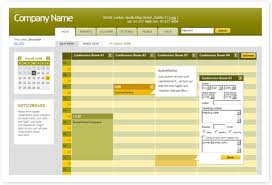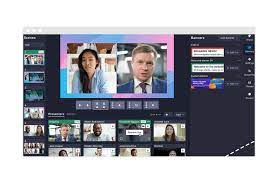Venue Management Software: Streamlining Event Operations
In the fast-paced world of event management, efficiency is key. From booking venues to coordinating logistics, every aspect of event planning requires careful organization and coordination. This is where venue management software comes into play, revolutionizing the way events are managed and executed.
Venue management software is a powerful tool that simplifies and streamlines the entire event planning process. It provides event organizers with a centralized platform to handle all aspects of venue operations, including bookings, scheduling, communication, and financial management. With this software, the days of relying on spreadsheets and manual processes are long gone.
One of the primary benefits of venue management software is its ability to automate tasks that were once time-consuming and prone to human error. For example, it allows event organizers to easily check venue availability in real-time and make instant bookings online. This eliminates the need for back-and-forth communication with venues and minimizes double bookings or scheduling conflicts.
Additionally, venue management software enables efficient communication between event organizers and venues. It provides a secure platform for exchanging messages, sharing documents, and updating event details in real-time. This ensures that everyone involved in the event has access to accurate information at all times, reducing miscommunication and ensuring smooth operations.
Financial management is another area greatly improved by venue management software. The software enables users to generate invoices, track payments, and manage budgets all in one place. This not only saves time but also enhances financial transparency by providing a clear overview of expenses and revenue associated with each event.
Furthermore, venue management software often includes reporting features that allow event organizers to analyze data related to their events. They can track attendance numbers, revenue generated from different sources (such as ticket sales or sponsorships), and other key performance indicators. These insights help organizers make informed decisions for future events and identify areas for improvement.
The benefits of venue management software extend beyond just saving time; they also contribute to a more sustainable event industry. By eliminating the need for physical paperwork and reducing manual processes, this software helps minimize waste and environmental impact. It promotes a greener approach to event management, aligning with the growing demand for sustainability in the industry.
In conclusion, venue management software is a game-changer for event organizers. Its ability to streamline operations, automate tasks, improve communication, and enhance financial management makes it an indispensable tool in the modern event planning landscape. By utilizing this software, event organizers can focus more on creating memorable experiences for attendees while leaving the administrative burdens to technology.
5 Frequently Asked Questions about Venue Management Software
- What features should I look for in a venue management software?
- How much does venue management software cost?
- What is the best venue management software for my business?
- How easy is it to use venue management software?
- Does venue management software integrate with other systems or services?
What features should I look for in a venue management software?
When searching for a venue management software, it’s essential to consider several key features that will best meet your specific needs. Here are some important features to look for:
- Booking and Scheduling: The software should provide a user-friendly interface for easily checking venue availability, making bookings, and managing event schedules. It should allow you to view real-time availability and prevent double bookings or conflicts.
- Communication Tools: Look for software that offers robust communication features, such as secure messaging systems or email integration. This ensures smooth communication between event organizers and venues, allowing for quick updates and efficient collaboration.
- Financial Management: The software should have comprehensive financial management capabilities, including invoicing, payment tracking, and budget management. It should enable you to generate invoices easily, track payments, and provide financial reports for better budgeting and expense monitoring.
- Reporting and Analytics: Consider software that provides reporting tools to analyze data related to your events. This feature allows you to track attendance numbers, revenue streams, marketing effectiveness, and other key performance indicators. Data-driven insights help you make informed decisions and improve future events.
- Integration with Other Systems: Check if the venue management software can integrate with other systems you use in your event planning process. For example, integration with CRM (Customer Relationship Management) or ticketing systems can streamline workflows by synchronizing data across platforms.
- Mobile Accessibility: Ensure that the software is accessible via mobile devices so that you can manage events on-the-go. Mobile compatibility allows you to access important information anytime and anywhere without being tied to a desktop computer.
- Customization Options: Look for software that offers customization options tailored to your specific requirements or branding needs. The ability to personalize the platform with your logo or color scheme enhances professionalism and brand consistency.
- User-Friendly Interface: A user-friendly interface is crucial for easy adoption by both event organizers and venues. Intuitive navigation, clear labeling, and a clean design contribute to a positive user experience.
- Security and Data Privacy: Verify that the software has robust security measures in place to protect sensitive data, such as attendee information or financial records. Ensure that it complies with industry standards and regulations regarding data privacy.
- Customer Support: Consider the level of customer support provided by the software provider. Look for options such as live chat, email support, or phone assistance to address any issues or questions that may arise during your use of the software.
By considering these features, you can find a venue management software that aligns with your requirements and helps streamline your event planning process effectively.
How much does venue management software cost?
The cost of venue management software can vary depending on several factors, including the features and functionality offered, the size and complexity of your organization or venue, and the pricing model of the software provider.
Some venue management software providers offer subscription-based pricing models, where you pay a monthly or annual fee based on the number of venues or events you manage. The cost can range from a few hundred dollars per month for smaller organizations to several thousand dollars per month for larger enterprises.
Other providers may offer tiered pricing plans based on different levels of functionality or service. These plans typically have different price points to cater to various organizational needs and budgets.
It’s important to note that some software providers may also charge additional fees for implementation, training, support, or customization services. These costs should be considered when evaluating the overall investment required for implementing venue management software.
To get an accurate estimate of the cost for your specific requirements, it is recommended to reach out to different software providers directly. They can provide you with detailed pricing information based on your organization’s size, event volume, and specific needs. It’s also advisable to compare multiple options and consider factors like customer reviews, reputation, and customer support before making a decision.
Remember that while cost is an important consideration, it should be balanced with the value and benefits that the venue management software brings in terms of efficiency gains, time savings, improved operations, and enhanced event experiences.
What is the best venue management software for my business?
Choosing the best venue management software for your business depends on several factors, including your specific needs, budget, and the size of your operations. While there are numerous options available in the market, here are a few popular venue management software solutions worth considering:
- EventPro: EventPro offers a comprehensive suite of tools for venue and event management. It includes features such as booking management, scheduling, resource allocation, financial tracking, and reporting. EventPro is known for its user-friendly interface and scalability to accommodate businesses of all sizes.
- Tripleseat: Tripleseat is a cloud-based platform designed specifically for event sales and catering. It streamlines the booking process, manages contracts and proposals, tracks leads and communication history, and facilitates collaboration between venues and clients. Tripleseat is particularly popular among restaurants, hotels, and other hospitality businesses.
- Ungerboeck: Ungerboeck provides an all-in-one solution for venue management that covers everything from event booking to financials. Its robust features include CRM integration, event marketing tools, space utilization analytics, inventory management, and more. Ungerboeck is widely used by convention centers, arenas, exhibition halls, and large-scale venues.
- Priava: Priava is a cloud-based venue management software that offers a range of features such as automated bookings, CRM integration, invoicing capabilities, reporting tools, and resource planning. It caters to various types of venues like conference centers, museums, sports facilities, and performing arts spaces.
- ArtifaxEvent: ArtifaxEvent specializes in venue scheduling and resource management for arts organizations such as theaters, concert halls, galleries, and museums. It assists with event planning workflows including scheduling staff members or equipment resources while also providing functionality for ticketing integration.
It’s important to thoroughly research each option to determine which best aligns with your business requirements. Consider factors such as ease of use/interface intuitiveness, scalability, customer support, and pricing structure. Additionally, reach out to the software providers for demos or trials to get hands-on experience before making a final decision.
How easy is it to use venue management software?
Venue management software is designed to be user-friendly and intuitive, ensuring that event organizers of all levels of technical expertise can easily navigate and utilize its features. The software providers understand the importance of simplicity and ease-of-use, as event professionals often have tight timelines and need to quickly adapt to new tools.
Most venue management software platforms offer a clean and user-friendly interface with clear navigation menus and intuitive design. They provide step-by-step guides, tutorials, and customer support to assist users in getting started and making the most of the software’s capabilities.
The software typically offers drag-and-drop functionality, making it easy to create floor plans or seating arrangements. Users can easily add or modify event details, such as dates, times, and room configurations. Additionally, booking processes are usually straightforward, allowing users to check venue availability in real-time and make reservations with just a few clicks.
Communication features are often integrated into the software, enabling users to send messages, share documents, or update event details directly within the platform. These features are designed to be user-friendly and familiar, resembling email interfaces or chat systems that people are already accustomed to using.
Financial management aspects of venue management software are also designed for ease-of-use. Users can generate invoices with customizable templates, track payments from clients or vendors, and manage budgets through simple interfaces. This helps event organizers stay on top of their financials without requiring extensive accounting knowledge.
While there may be a learning curve when first using venue management software due to its various features and functionalities, most providers offer comprehensive training resources such as video tutorials or live support sessions. This ensures that users can quickly become proficient in utilizing the software’s capabilities.
In summary, venue management software is designed with user-friendliness in mind. Its intuitive interfaces, step-by-step guides, and available support resources make it easy for event organizers to navigate the software’s features effectively. With a little familiarization and practice, users can harness the power of venue management software to streamline their event operations efficiently.
Does venue management software integrate with other systems or services?
Yes, venue management software often integrates with other systems and services to enhance its functionality and provide a seamless experience for event organizers. Integration capabilities vary depending on the specific software, but here are some common integrations:
- CRM Systems: Venue management software can integrate with Customer Relationship Management (CRM) systems to synchronize customer data, streamline communication, and provide a comprehensive view of customer interactions.
- Event Registration Platforms: Integration with event registration platforms allows for seamless data transfer between the two systems. This ensures that attendee information is accurately captured and updated in both systems without manual intervention.
- Accounting Software: Integration with accounting software simplifies financial management by automatically syncing invoices, payments, and other financial data between the venue management system and the accounting software.
- Marketing Tools: Integration with marketing tools such as email marketing platforms or social media management tools enables event organizers to promote their events more effectively and reach a wider audience.
- Access Control Systems: Many venue management software solutions integrate with access control systems to manage entry permissions, ticket scanning, and security measures during events.
- Reporting and Analytics Tools: Integrating venue management software with reporting and analytics tools allows for deeper analysis of event data, generating insights into attendee behavior, revenue trends, and other key metrics.
- Mobile Apps: Some venue management software offers integration with mobile apps that provide additional features like mobile ticketing, event schedules, interactive maps, and real-time updates for attendees.
These are just a few examples of the many possible integrations available for venue management software. The aim is to create a connected ecosystem where different systems work together seamlessly to enhance the overall event planning and execution process.




